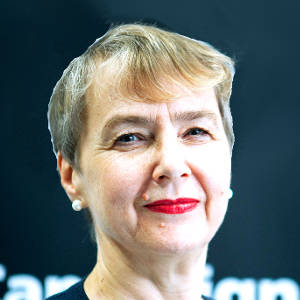On Saturday 9th December, as campaigners gathered in Oslo for the award of the Nobel peace prize to the International Campaign to Abolish Nuclear Weapons, ICAN campaigners in London gathered outside the Ministry of Defence. Our message was a clear one: it’s time for the British government to listen to the global community and get on side with the nuclear ban treaty.
We were delighted to receive mini chocolate peace prizes from CND vice-president Bruce Kent and hear from speakers from WILPF – itself twice a Nobel Peace Laureate – and Medact. Before holding a die-in (notwithstanding freezing temperatures!) we were also delighted to welcome journalist and CND supporter Victoria Brittain, whose words are shared below.
“Tremendous congratulations to ICAN on receiving the Nobel peace prize and on the support at the UN by 122 countries for the Treaty prohibiting nuclear weapons. This is the result of incredible campaigning at every level and every opportunity, as we are doing today.
We all see Hiroshima and Nagasaki in our mind’s eye when we hear the word nuclear weapons.
We can never forget those crimes.
Kate and Bruce have spoken about the dangerous madness of this moment. We have a US president and his circle who believe that nuclear weapons could be used today; the consequences for the whole world are unthinkable.
And here in Britain we are involved in a mindless and the massive waste of our resources.
Here 13 million people, that is one person in 5, live in absolute or relative poverty while our leaders spend our resources on Trident, a nuclear weapons system which we have to tell ourselves will never be used.
I want to remind us all of what the culture of nuclear weapons’ acceptability – that is the accepted politics of the US, Russia, France, China and the UK – means for the other nuclear countries:
- North Korea became a nuclear country in response to: the US arbitrarily dividing the country in 1945; the US introduction of nuclear weapons in South Korea – only removed by George H Bush; 25,000 US troops in the south, and a constant presence of US nuclear submarines patrolling the coast and over-flying by US war planes.
- Israel’s unacknowledged nuclear weapons are part of the country’s military dominance of the war ravaged region – enabled by the extraordinary US military subsidy of the country: $3.7 billion in 2017.
- Pakistan and India: if Pakistan and India had a nuclear war, using just half their warheads, 21m people would die in a week; there would be a nuclear winter which would cripple agriculture world-wide.
We have to tell ourselves it will never happen. Meanwhile Pakistan has spent £2.2 billion on nuclear weapons. Pakistan is a country which has 25 million children who are not in school. A country which spends 2.2% GDP on education.
Compare that with Cuba’s 12.9%; Bolivia’s 7.6%; Vietnam’s 6.6%; Jamaica’s 6.4%
The societies which have grown in these countries from this investment in their people’s future have many elements of human life at its idealistic best.
Here are some words from the great Caribbean poet Martin Carter which speak to this:
I have learnt
from books dear friend
of men dreaming and living
and hungering in a room without a light
who could not die since death was far too poor
who did not sleep to dream, but dreamed to change
the world.
That is our dream here today.”
